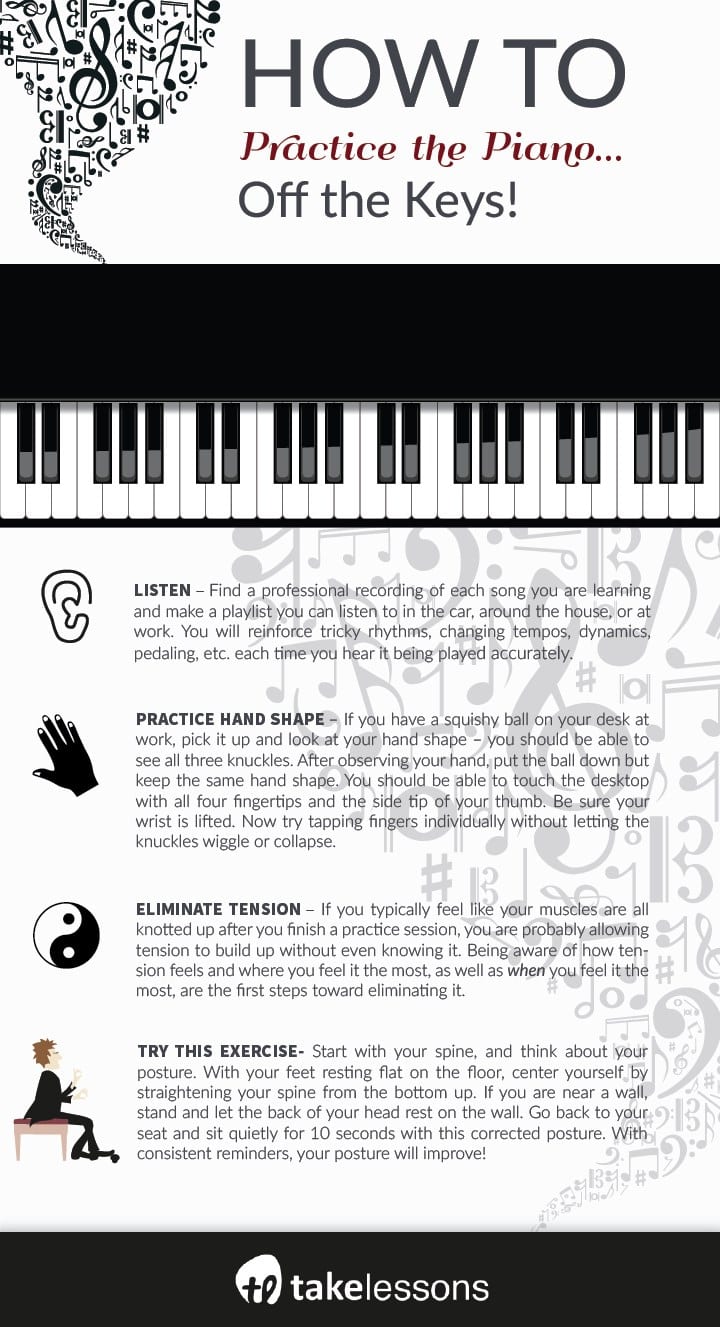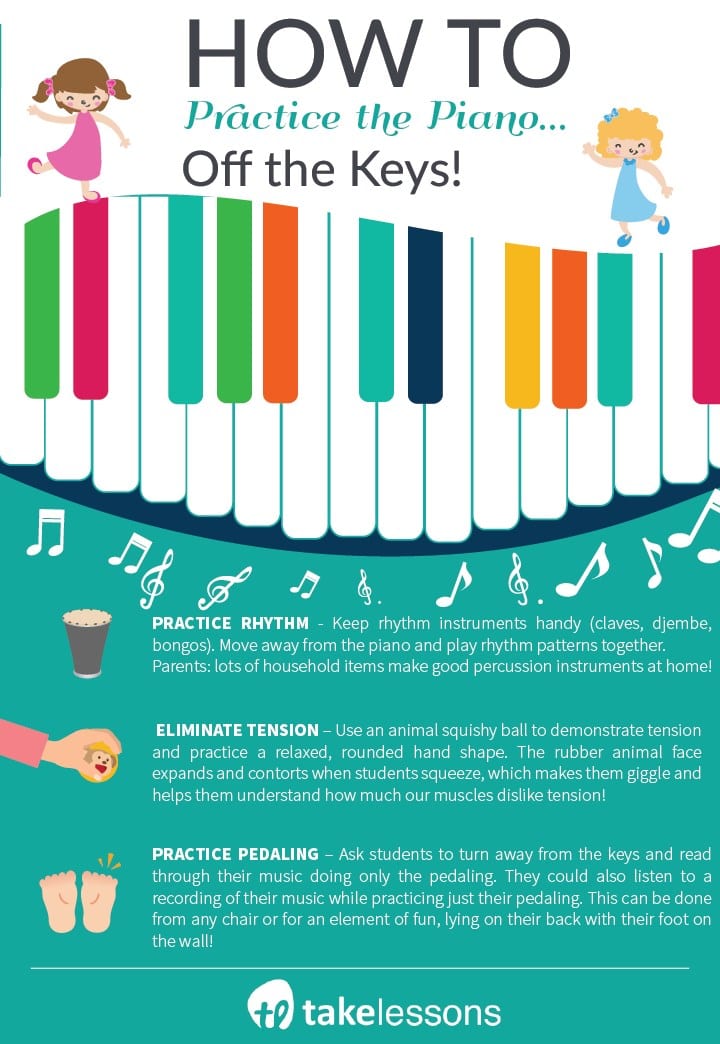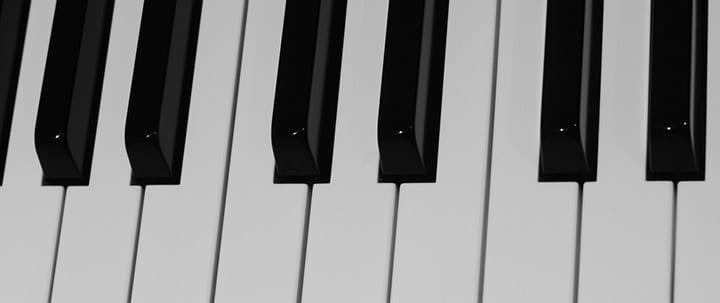Not sure where to start when you sit down at the piano? These practice tips will keep you focused on meaningful improvement.
Practicing is the most important part of learning and becoming a piano player. Remember these tips to take your practice time to its highest potential!
1. Set a Clear Goal
If you sit down at the piano and say, “I’m going to play for a bit,” you aren’t going to to learn anything. Instead, set a goal: “I’m going to learn how to play the opening song in Frozen.” Since you set a goal, you are going to keep at it until you reach it.
You also have to make sure that your goal is achievable in your practice time frame. If you have only two hours, you probably shouldn’t try to learn the entire “Planets Suite” by Holst, maybe just the pretty part in “Jupiter.”
2. Warm Up
Boring! We get it. It’s a tedious way to start, but without it, you put yourself at risk of carpal tunnel and tendinitis. You’d rather spend 10 minutes warming up than be in pain for six months.
This is one of the most important piano practice tips, because a proper warm up also gives you the opportunity to achieve flow, a state of mind where you’re locked in on the task at hand, and get maximum improvement.
[tl-live.class-carousel]
3. Set Aside Time for Fundamentals
Make sure at least 15 minutes of your practice time is set aside for things like scales, accuracy, and timing. You only gain technical skills by repetition. Just build in 15 minutes of fundamentals to every one of your practices and you will be able to play insanely technical pieces.
4. Slow Down
The trick to learning hard songs is learning them at half-speed and then slowly speeding up. Slow down to whatever speed you can play it perfectly. Then, when you can play it perfectly at that speed three times, speed it up a little bit. “What’s a little bit?” Glad you asked…
5. Use A Metronome and Slow Down Again
If you can’t play a song in time, then you can’t play the song. “Flight of the Bumblebee” is played, depending on how you count it, at about 500bpm.
But do not start trying to learn the song at 500bpm. Start at 50bpm. When you can play it at 50, speed it up to 60, and so forth until you can play at the correct speed.
SEE ALSO: 6 Common Practice Problems and How to Solve Them
6. In Case You Didn’t Hear it, Slow Down
We can’t stress this piano practice tip enough. Good musicians learn how to practice a fast song at a tenth of its speed, and then gradually speed it back up to normal pace.
7. Listen
Name your top 10 favorite pianists. If you don’t have the list, you haven’t listened to enough pianists. You have to know what “great” sounds like to sound great yourself. It’s easy to discover great pianists and great music – just try a simple search on YouTube!
8. Imitate, then Innovate
After you listen, try to copy the piano solos you love, and then try to make them better. This is where you find out who you are and what is special about your piano playing. This is the opportunity to go from being great to being unique.
SEE ALSO: Can You Learn the Piano on Your Own?
9. Take A Break
You’ve warmed up, spent 15 minutes on fundamentals, learned how to play “Jupiter,” and now you are on to “Mars.” You spent 20 minutes listening and copying Fats Waller solos. What do you do next?
You stop.
… and breathe. Then get back into it.
10. Start and End With Fun
Make sure you play something you love when you start to practice and something you love when you are done, preferably something you are great at playing. This will keep your confidence up!
Looking for even more practice tips for adults and children? See the graphics below for some helpful ideas of how to practice piano anywhere, any time!
Practice Tips for Adults While Away from the Piano

Bonus: Practice Tips for Kids While Away from the Piano

The most important thing to remember is that all this hard work gives you the ability to entertain, uplift, and touch people with your talent. It’s also way more fun playing piano when you are good at it, and practice is just what you need to get there!
For more expert advice on effective piano practice, sign up for TakeLessons Live or work with a certified piano teacher near you.
Photo by: HannahWebb
Suzy S.
